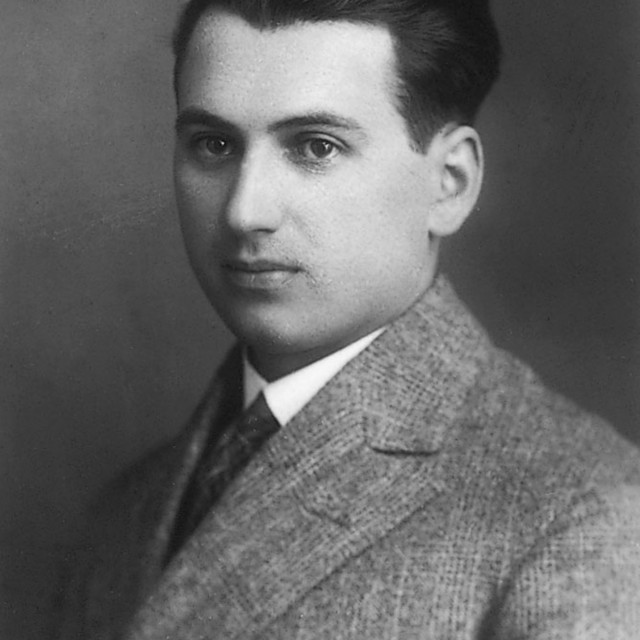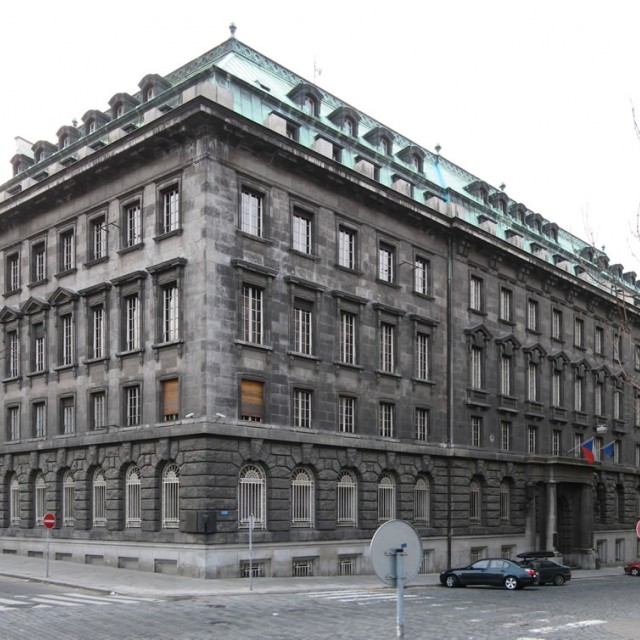Mimeographed death sentence
Martial law was declared in Prague in May 1942 after the assassination of Deputy Reichsprotektor R. Heydrich. The Gestapo arrested Jiří Stránský’s father soon afterwards. Jiří Stránský’s did not get to hear this unbelievable story of what took place in Prague’s Petschek Palace, the headquarters of the Gestapo and the Court Martial on the very day of the father’s arrest, from his mother until several years after the father’s death. “My mother had some experience with father’s arrests by then and she went to the Petschek palace immediately. She waited there for four hours until a SD man came, (ed. note: SD stands for Sicherheitsdienst, an intelligence service under the authority of the Reich Main Security Office). He told my mother to come with him, and then he showed her a sheet of mimeographed paper, A5 format, in a small office. It was a mimeographed death sentence, with my father’s name and one signature completed. It still gives me horror to this day, but this is how they did it at the time, under martial law and all that persecution. The official showed my mother that half-signed death sentence for my father, then he tore it to bits and said: ‘Tell your husband that we’re even now. He saved my life in Galicia in World War I.’ It’s such an unbelievable story that, even though I’m a writer, I won’t use it in my work," he recalled.
Hodnocení
Abyste mohli hodnotit musíte se přihlásit!
Trasy
Příběh není součastí žádné trasy.
Komentáře

Martial law in Czechoslovakia
Martial law was an extraordinary government measure used in the event of severe threat to national security, restricting certain civic rights under exceptional circumstances such as war, civic unrest, and natural disasters. The purpose of martial law was to discourage citizens from committing crimes that were considered exceptionally socially hazardous – and could become increasingly frequent – under the circumstances. The discouraging effect was achieved through abbreviated and simplified penal procedures instituted by the police’s martial courts and draconically heavier punishments, including capital punishment. Reinhard Heydrich declared the first martial law in our country during the Protectorate of Bohemia and Moravia between 28 September 1941 and 20 January 1942. During that period, martial courts sentenced 486 people to death and turned 2,242 people in to the Gestapo; they were then sent to Mauthausen. Hearings were formal; the Gestapo proposed a sentence and the chair of the martial court would often sign it without any hearing. Martial law was declared again after the assassination of Heydrich on 27 May 1942, and 1,585 people were executed, (including 173 victims of the Lidice massacre), before it was lifted on 3 July 1942. The period of Nazi reprisals intended as a retribution for the assassination of the Deputy Reichsprotektor is also referred to as the “Heydrichiad.” The institution of martial law in the former Czechoslovakia was finally abolished by Act No. 178/1990, which deleted the relevant passage, (Sections 307 – 314), of Act No. 141/1961, the Rules of Criminal Procedure, which required inter alia that the entire proceedings be completed no later than 72 hours of bringing the accused before the court; that there is no appeal; and that the death penalty be executed between 3 and 12 hours of the finality of the sentence.









